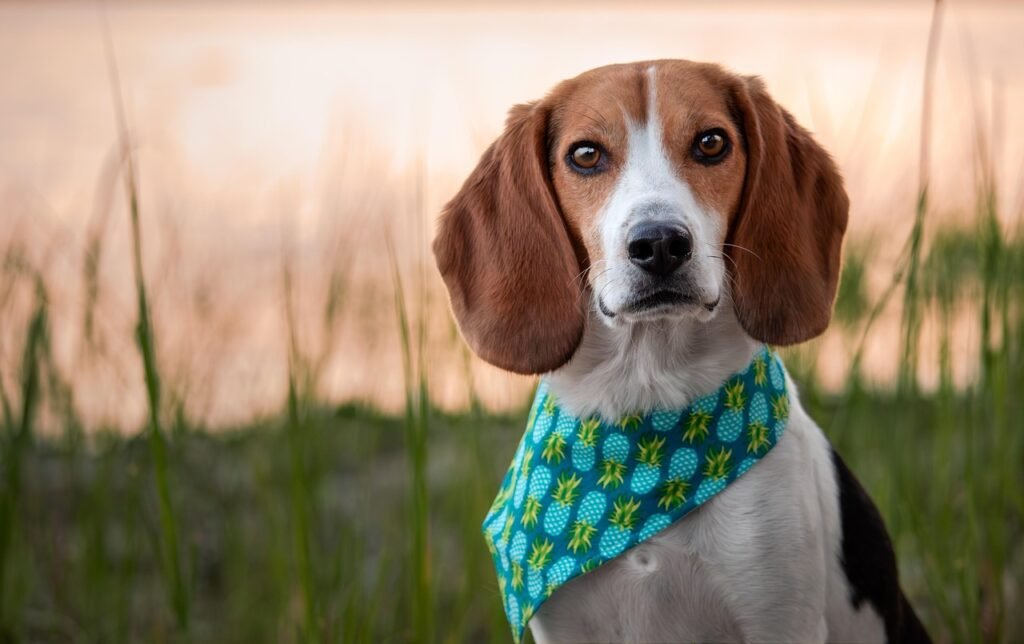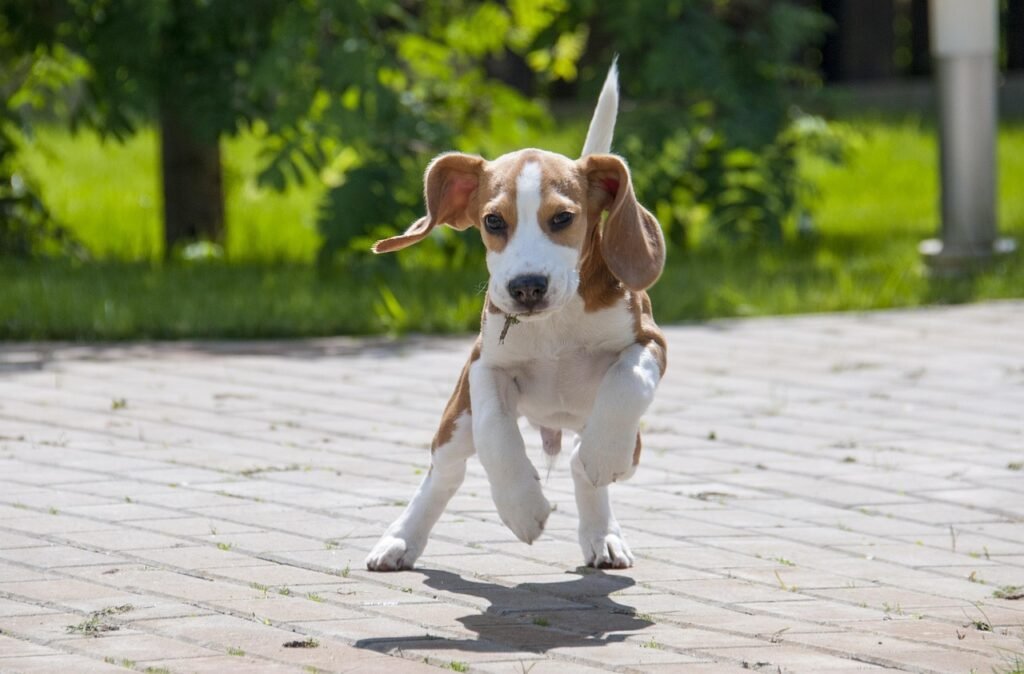Beagle Dog Breed
The Beagle is one of the most loved breeds worldwide. With big brown eyes, long floppy ears and a joyful personality, this small hound has captured the hearts of families for centuries. The Beagle is curious, energetic and affectionate. It has a powerful nose, a strong hunting drive and a loyal spirit. Families choose the Beagle for its playfulness, adaptability and charm.
1. History of the Beagle
The Beagle’s history stretches back hundreds of years. Early Beagles were used in England during the 1500s. Hunters bred them to track rabbits and hares on foot. They were small enough to follow through fields and strong enough to work all day.
By the 19th century the Beagle had developed into its modern form. English breeders refined the dog for hunting and companionship. The breed soon spread to America where it grew popular as both a field hound and a family pet. Today the Beagle is one of the most common dogs in homes around the world.
2. APPEARANCE
The Beagle is small but sturdy. Adults stand 33 to 38 centimetres tall and weigh between 9 and 11 kilograms. They have a muscular build with straight legs and a deep chest.
Their coat is short, smooth and easy to care for. The classic look is tri-colour with black, tan and white, but lemon and white, red and white and other colour patterns also exist. The long floppy ears frame their face and help funnel scents toward their nose. Their dark brown eyes are soft and expressive, giving them an innocent look that melts hearts.
Beagles carry their tails high, showing alertness and excitement. The tail tip is often white, a trait that helped hunters spot them in tall grass.
3. Personality and Temperament
Beagles are merry, friendly and outgoing. They love people and form strong bonds with their families. With children they are gentle, patient and playful, making them one of the best family dogs.
They are curious by nature and love to explore. Their strong sense of smell drives them to follow scents with focus and determination. This hunting instinct can make them stubborn, but it also shows their intelligence.
Beagles are social dogs. They thrive in groups and do not like being left alone. If left for too long, they may become vocal or destructive. They are known for their distinct howl and bay, sounds they use to communicate excitement or alertness.
They are smart but independent. Training requires patience, consistency and positive rewards. Harsh methods do not work, but Beagles respond well to praise, treats and games.

4. Care and Grooming
The Beagle’s coat is easy to manage. Weekly brushing removes loose hair and keeps the coat shiny. They shed year-round but only lightly. Baths are needed occasionally.
Their ears need special attention. The long, floppy shape limits airflow and can trap dirt, which may cause infections. Owners should check and clean ears weekly. Nails should be trimmed regularly, and dental care is important to prevent problems.
Beagles need daily exercise. They are energetic dogs that enjoy long walks, games of fetch and opportunities to sniff. A secure yard is best since they can wander if they catch an interesting scent. Mental stimulation is just as important. Puzzle toys, scent games and training sessions keep their minds sharp.
5. Health Considerations
Beagles are generally healthy but some conditions are more common in the breed. These include:
Hip dysplasia – affects joint health and mobility
Epilepsy – seizures can appear in some lines
Obesity – Beagles love food and can easily become overweight
Ear infections – caused by their long ears holding in moisture
Eye conditions – such as glaucoma or cherry eye
With proper care, Beagles live 12 to 15 years. Regular vet visits, a balanced diet and plenty of exercise are key to their health.
6. Beagle as a Family Pet
The Beagle is an excellent family dog. It is affectionate, playful and adaptable to many lifestyles. Beagles love being around children and usually get along well with other dogs.
They are alert and will sound an alarm if something unusual happens, but they are too friendly to be strong guard dogs. Their curious nature and love of food can get them into mischief, so supervision and training are important.
Beagles adjust well to houses or apartments as long as they get enough exercise. They dislike being left alone for long periods, so they do best in homes where someone is often around.

7. Is the Beagle Right for You?
The Beagle is a joyful and active companion. It suits owners who enjoy walks, outdoor adventures and interactive play. They need time, attention and patience in training.
If you can meet their needs, a Beagle will give back endless love, loyalty and entertainment. With their charm, curiosity and spirit, Beagles truly bring joy into every home.

